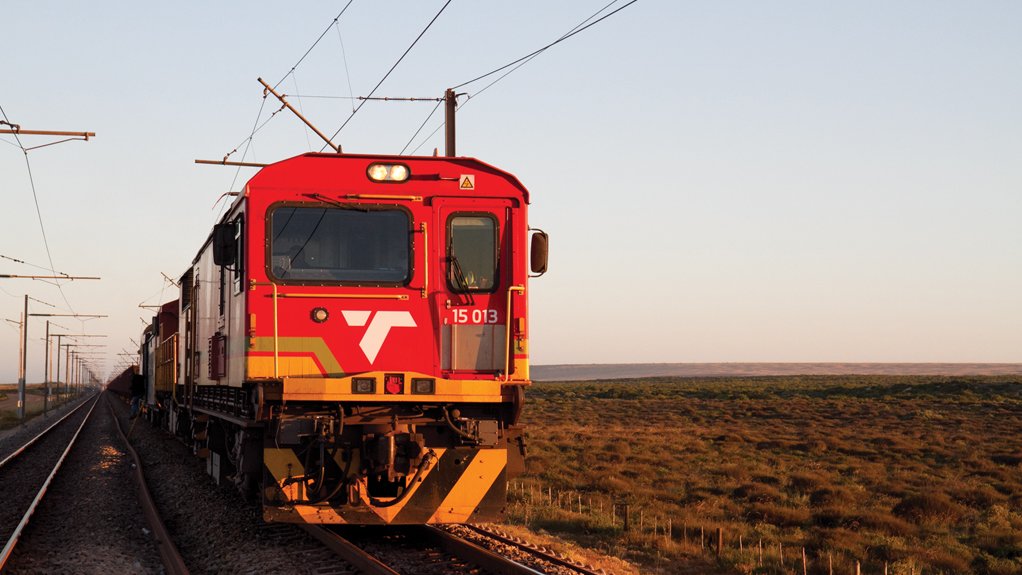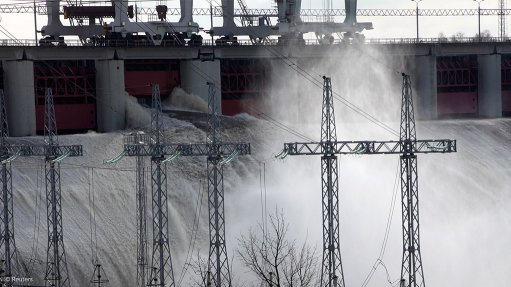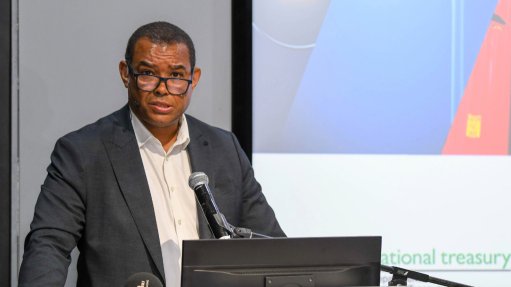Transnet Freight Rail Breakthrough Technologies
In a context of increasing competition, growing demand and tighter management of operational and capital costs, freight railways are constantly looking for ways to increase efficiency by boosting throughput and cutting costs. Below are several breakthrough technologies that have been developed and deployed by Transnet Freight Rail (TFR) in support of those objectives.
Radio Distributed Power (RDP)
RDP technology allows a single train driver to control more than one locomotive consist on the same train. TFR has used the technology to design and implement trains to longer lengths. Once-off test trains of longer than 7 km have been run, while daily production trains are operated at lengths up to 4 km. The RDP technology was recenlty applied to TFR’s export manganese trains, increasing lengths from 312 to 375 wagons with four locomotive consists per train. This allowed TFR to optimise infrastructure and rolling-stock utilisation and increase yearly export capacity by 1.4-million tons.
Electronically Controlled Pneumatic Brakes (ECP)
The ECP brake technology allows train drivers to apply all brakes throughout a train simultaneously rather than sequentially from a locomotive, as is the case when conventional airbrakes are used. TFR’s use of ECP on the Coal heavy haul line has led to safety, operational and maintenance benefits as a result of the shorter stopping distance and improved train handling leading. It has also lowered probability of derailments. The improved train handling, coupled with higher down gradient speeds, has led to shorter running times and reduced in-train forces, which has led to longer coupler life and fewer train partings.
Ultrasonic Broken Rail Detector (UBRD)
UBRD technology can detect a broken rail in real-time and then alert maintenance teams before a train reaches the affected section. It works by sending a pulse through the rail from a transmitter to a receiver hundreds of meters away. If the receiver does not pick up the pulse in the rail, then it is an indication that the continuously welded rail may be broken. UBRD technology is installed on TFR’s heavy haul Iron Ore line and has averted many costly derailments.
Monitoring System
An advanced condition monitoring system is installed on TFR’s Overvaal tunnel. It identifies the structural defects in ultra-high definition, measures the extent of the damage and monitors the structural behaviour in its current condition under train and rock loads. The condition monitoring system has led to a better understanding of the tunnel’s structural integrity, enabled the early detection of potential structural risks, reduced the maintenance downtime and cost, and has increased the structure’s service life.
Dual Voltage Locomotives
Dual voltage locomotives can operate on alternating current (AC) and direct current (DC) railway traction power systems. TFR electrified its Ermelo yard to reduce the train processing time, with 3 kV DC traction power installed north of Ermelo and 25 kV AC installed south of Ermelo. Previously, locomotives would be changed at Ermelo yard from DC to AC for trains proceeding to Richards Bay. Since the roll-out of dual-voltage locomotives, there is no longer a need to use diesel locomotives to pull the wagons over the non-electrified section of the yard.
Conclusion
The application of these technologies has delivered material benefits to TFR, including: increased throughput, improved safety, reduced capital requirements, optimised resource utilisation, lower maintenance costs and shorter turn-around-times.
Article Enquiry
Email Article
Save Article
Feedback
To advertise email advertising@creamermedia.co.za or click here
Comments
Press Office
Announcements
What's On
Subscribe to improve your user experience...
Option 1 (equivalent of R125 a month):
Receive a weekly copy of Creamer Media's Engineering News & Mining Weekly magazine
(print copy for those in South Africa and e-magazine for those outside of South Africa)
Receive daily email newsletters
Access to full search results
Access archive of magazine back copies
Access to Projects in Progress
Access to ONE Research Report of your choice in PDF format
Option 2 (equivalent of R375 a month):
All benefits from Option 1
PLUS
Access to Creamer Media's Research Channel Africa for ALL Research Reports, in PDF format, on various industrial and mining sectors
including Electricity; Water; Energy Transition; Hydrogen; Roads, Rail and Ports; Coal; Gold; Platinum; Battery Metals; etc.
Already a subscriber?
Forgotten your password?
Receive weekly copy of Creamer Media's Engineering News & Mining Weekly magazine (print copy for those in South Africa and e-magazine for those outside of South Africa)
➕
Recieve daily email newsletters
➕
Access to full search results
➕
Access archive of magazine back copies
➕
Access to Projects in Progress
➕
Access to ONE Research Report of your choice in PDF format
RESEARCH CHANNEL AFRICA
R4500 (equivalent of R375 a month)
SUBSCRIBEAll benefits from Option 1
➕
Access to Creamer Media's Research Channel Africa for ALL Research Reports on various industrial and mining sectors, in PDF format, including on:
Electricity
➕
Water
➕
Energy Transition
➕
Hydrogen
➕
Roads, Rail and Ports
➕
Coal
➕
Gold
➕
Platinum
➕
Battery Metals
➕
etc.
Receive all benefits from Option 1 or Option 2 delivered to numerous people at your company
➕
Multiple User names and Passwords for simultaneous log-ins
➕
Intranet integration access to all in your organisation





















